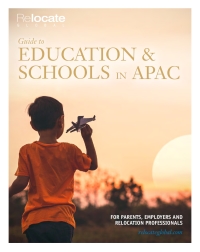The changing face of international education in Indonesia
As demand for high-quality English-medium education continues to grow, major changes have been made to the regulations surrounding Indonesia’s international schools.

‘International’ school policies in Indonesia
In 2015, the Indonesian government made some major changes to the regulation of the country’s international schools, one result of which is that no school is now permitted to call itself an ‘international’ school.Indonesia’s Ministry of Education set the new standard, along with several others, because it said that some schools were not meeting appropriate standards for international schools.Accordingly, the country’s international schools have been forced to change their names. The popular British International School is now known as the British School Jakarta, and the renowned Jakarta International School is now the Jakarta Intercultural School, keeping its JIS acronym. Some other schools are simply using their original acronyms, with no full-name association. Another recent regulation requires all schools in the country, including international schools, to deliver Indonesian culture and language learning to foreign students.The government has also laid down more extensive demands for Indonesian language, religious education, history and citizenship studies for local children.
Another recent regulation requires all schools in the country, including international schools, to deliver Indonesian culture and language learning to foreign students.The government has also laid down more extensive demands for Indonesian language, religious education, history and citizenship studies for local children.Related APAC guide articles:
- The international schools market in Asia
- Education and international schools in Malaysia
- Supporting relocating families in the APAC region
A third directive sets expectations for the employment of staff, requiring that teachers at international schools (including expatriate teachers) must have at last five years of qualified experience and be proficient in the Indonesian language, owing to the compulsory subjects that Indonesian students studying at international schools must take.In addition, international schools can no longer be fully owned by foreign stakeholders; the new law states that foreigners can only own 49 per cent of a school.Although these recent regulations suggest there were questionable standards, most of Indonesia’s international schools have very good reputations and are the preferred education choice among many wealthier local families and expatriates.
International-school options
According to the latest data from ISC Research, Indonesia currently has 195 English-medium international schools, between them teaching approximately 59,600 students.Not surprisingly, Jakarta, the country’s capital, dominates. The largest selection of schools is in the south of the city, where there are 34. North Jakarta has 21 and west Jakarta 20.Of Indonesia’s international schools, 53 per cent are British in their orientation. One of the leading schools is the British School Jakarta, based in south-west Jakarta.The school meets the requirements of the National Curriculum of England through the creative and internationally minded learning approach of the International Primary Curriculum. Its high-school students study for GCSEs, followed by the International Baccalaureate Diploma Programme (IBDP).Another popular school is Beacon Academy, in north Jakarta, which teaches the International Primary Curriculum, as well as its sister programme, the International Middle Years Curriculum, before students move into high school to prepare for Cambridge International GCSEs and the IBDP.Some 18 per cent of Indonesia’s international schools are US oriented; Jakarta Intercultural School is one of these. The school has 2,400 students on four campuses throughout the city, and offers students the chance to study towards the Advanced Placement as well as the IBDP. North Jakarta Intercultural School is another American-oriented international school.According to the ISC Market Intelligence Report 2015, most of Indonesia’s leading international schools are operating at, or near, full capacity, with little evidence of new developments.With demand for high-quality English-medium education – particularly from wealthy locals and an increasing number of South Koreans moving to the country – continuing to grow throughout Indonesia, relocating families are urged to plan well ahead to secure a place at the school of their choice.
The APAC Guide to Education & Schools is designed to help relocating parents make informed education choices.
- Employers: Access the free digital guide here.
- Relocation professionals: Access the free digital guide here.
- Parents: Access the free digital guide here.
 Get access to our free Global Mobility Toolkit
Get access to our free Global Mobility Toolkit  © 2017. This article first appeared in the 2017 edition of the Guide to APAC Education & Schools, published by Profile Locations, Spray Hill, Hastings Road, Lamberhurst, Kent TN3 8JB. All rights reserved. This publication (or any part thereof) may not be reproduced in any form without the prior written permission of Profile Locations. Profile Locations accepts no liability for the accuracy of the contents or any opinions expressed herein.
© 2017. This article first appeared in the 2017 edition of the Guide to APAC Education & Schools, published by Profile Locations, Spray Hill, Hastings Road, Lamberhurst, Kent TN3 8JB. All rights reserved. This publication (or any part thereof) may not be reproduced in any form without the prior written permission of Profile Locations. Profile Locations accepts no liability for the accuracy of the contents or any opinions expressed herein.






















